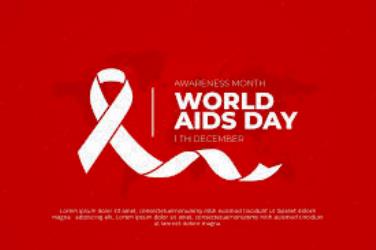The Executive Director of UN Population Fund (UNFPA), Ms Natalia Kanem on Thursday said that the HIV virus and other pandemics would continue to ravage the society until inequalities are ended.
Kanem said this on the occasion of the World AIDS Day (WAD), in a statement issued to journalists by Kori Habib, UNFPA Media Associate in Abuja.
She explained that Pandemics thrive on the fault lines of inequalities.
“Ending inequality must therefore be a keystone of our public health response to ending AIDS and COVID-19 and averting future pandemics.
“HIV prevention initiatives must encompass ending gender-based violence, balancing unequal power dynamics and countering harmful gender norms,” she said.
The Executive Director said that both AIDS and COVID-19 can be halted and future pandemics thwarted.
She identified strong political will, action and accountability on all sides to acknowledge that no one is safe until everyone is safe.
According to her, viruses don’t discriminate: our policies to defeat them can’t either.
“Unless we commit to equal global health coverage and reshape our AIDS and other pandemic responses, they will continue to ruin lives, ravage communities and splinter societies.”
Kanem emphasized the imperatives of investing in more resilient health systems to reduce inequalities, increase growth and mean greater security for everyone.
“Ensuring sexual and reproductive justice is how we realize sexual and reproductive health and rights for all, for good.”
Kanem regretted that the Progress on the path to ending AIDS by 2030 has stalled in recent years, not because of a lack of knowledge or tools, but because these inequalities are obstructing access to HIV prevention and treatment.
She described it as a plight that is only intensifying, as many countries scale back sexual and reproductive services amid the COVID-19 crisis, their health systems stretched beyond breaking point.
She added: “COVID-19 has also exacerbated violence against women, and those who experience intimate partner violence are at significantly greater risk of contracting HIV.”
Kanem said that the threat of violence deters many in need from seeking HIV prevention, testing, treatment and support.
The Executive Director who reiterated that the inability to decisively contain the AIDS and COVID-19 pandemics, and the “shadow pandemic” of gender-based violence, said it is inseparable from other deadly affliction which is the disease of inequality.
“We see this when people living with HIV face heightened threats of social marginalization and prejudice.
“We see this in the mounting vulnerabilities to violence, to HIV infection, to being left behind — faced by adolescent girls, sex workers, and people who inject drugs.


